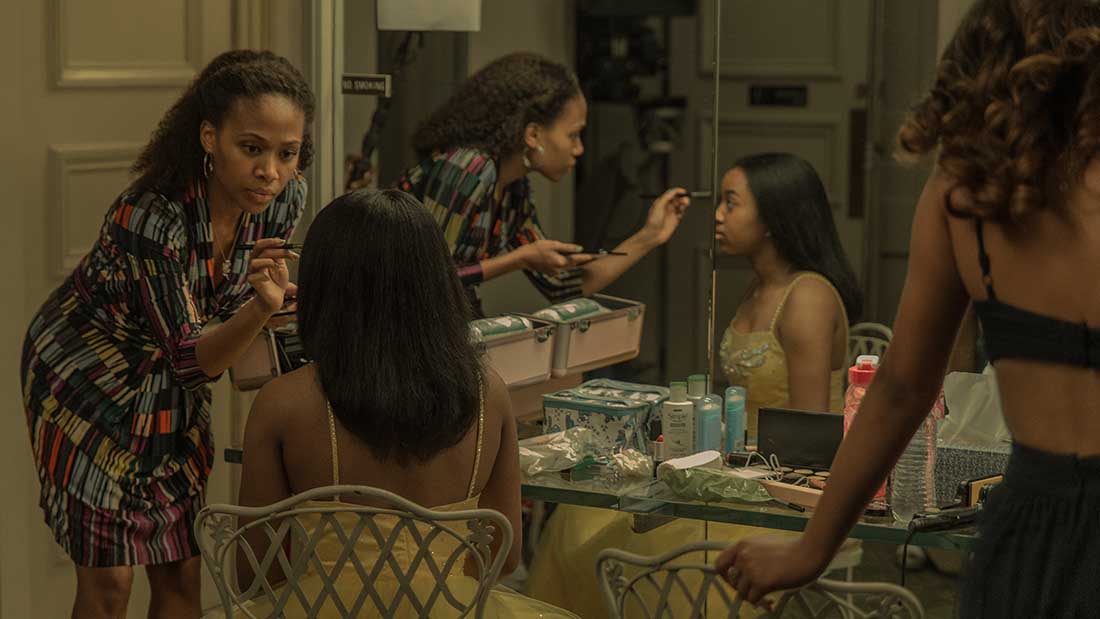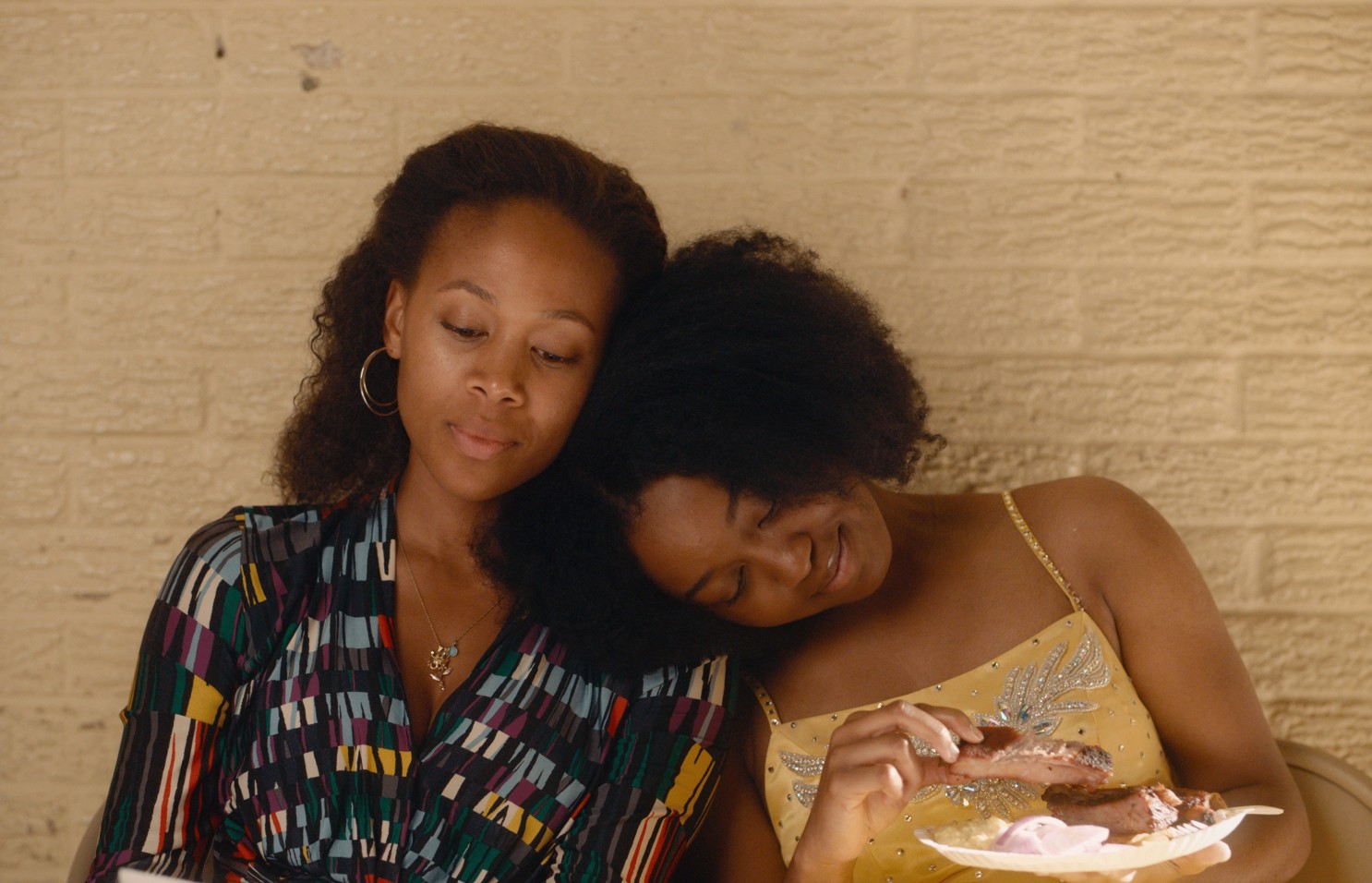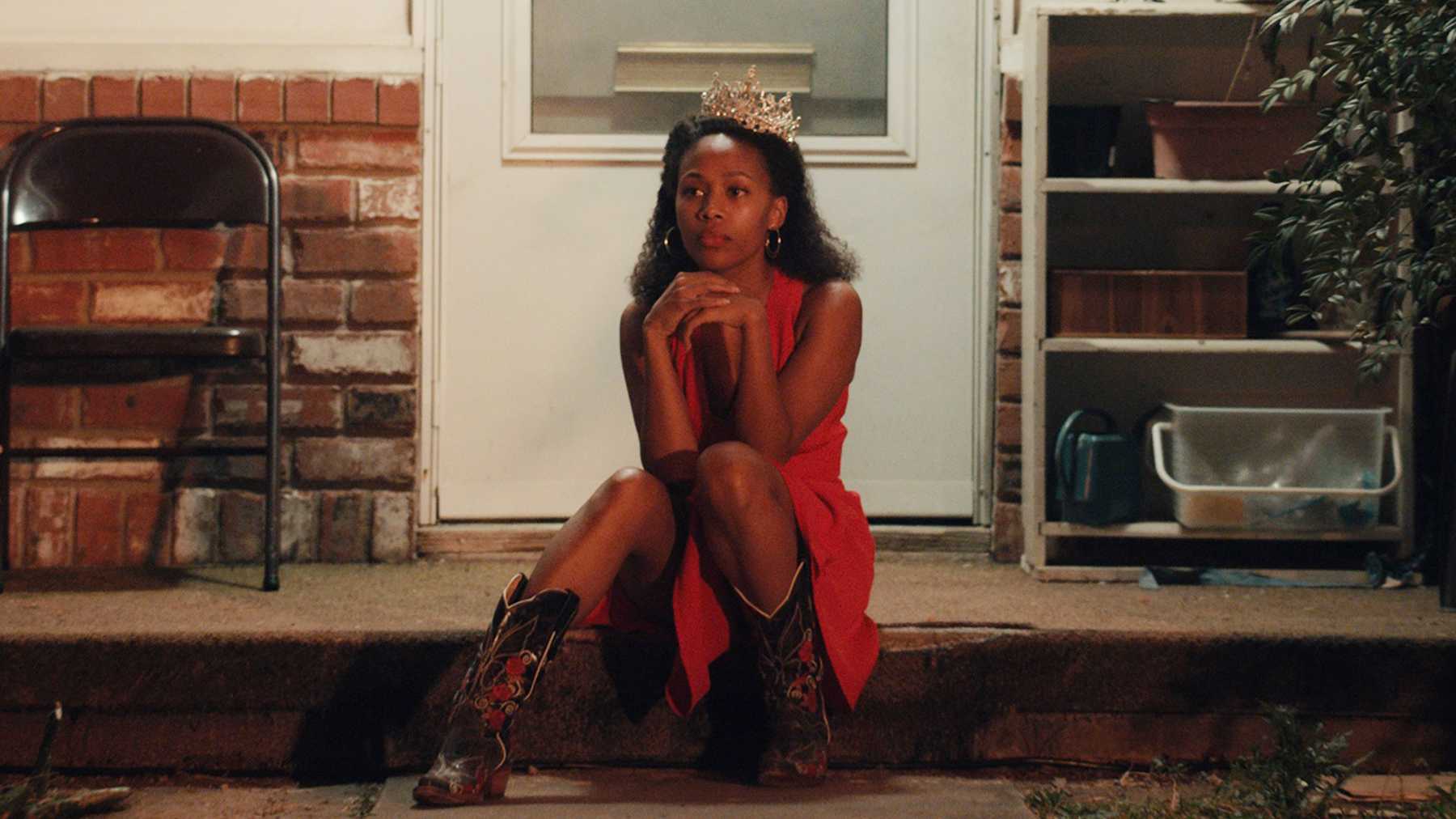Pageants have been rejected by a progressive society because of what they represent. Even when they make genuine strides to prize the contestants’ intelligence and social conscience, they are ultimately diminished by requiring contestants to parade around in sparkly evening gowns and skimpy bikinis. Nowadays, it’s hard to think about a pageant without imagining Donald Trump lewdly examining a row of contestants, judging their assets – or worse.
The Miss Juneteenth pageant, however, does not represent what your typical pageant represents. It’s at the centre of the new film Miss Juneteenth, and gets its name from the date when Texas slaves were finally notified that they were no longer indentured to their masters – on 19 June 1865, nearly two-and-a-half years after Abraham Lincoln actually emancipated them. That automatically makes it a different animal than your typical beauty pageant. Then, the beauty being celebrated is far more than skin deep. One contestant earns her crown through the performance of Maya Angelou’s poem “Phenomenal Woman,” which contains the following lines: “Pretty women wonder where my secret lies/I’m not cute or built to suit a fashion model’s size.”
Miss Juneteenth, the feature debut for writer-director Channing Godfrey Peoples, certainly has its focus in the right place, the place Angelou was coming from. However, it does not do enough to recognise that this pageant is different from the ones we usually think of. Instead of focusing on the racial legacy of the pageant and its ongoing function in elevating women of colour, the film settles for a more traditional narrative of a young contestant bucking against the restrictive nature of pageants in general. If you’re making a film about a pageant that relates to such an important historical date for African-Americans, you need to figure out how to do it more unapologetically.
Turquoise Jones (Nicole Beharie) won the annual Miss Juneteenth pageant when she was a teenager, but that was two decades ago. Now the mother of a daughter, Kai (Alexis Chikaeze), who is herself pageant age, Turquoise hasn’t blossomed into the same kind of successful public figure as other pageant winners. While they are judges and politicians’ wives, whom the pageant administrators tirelessly promote, she splits time between a bar with a barbecue pit and work as a coroner’s assistant. And this is only the most respectable incarnation of the work she’s done to put food on the table.
Turquoise sees in her daughter an opportunity for a do-over. Although Kai has no real interest in the pageant – she’s drawn to a cute boy at school and hip hop dancing – she also knows how much it means to her mother, so she reluctantly agrees to prepare for the pageant. Unfortunately, money is tight for the family and they cannot rely on Kai’s father and Turq’s estranged husband, Ronnie (Kendrick Sampson), who works at a body shop, and gambles away most of what he earns.
It’s hard to say whether Miss Juneteenth would have been a significantly better film with a little dose of Spike Lee outrage, but it definitely would have been a more memorable one. As is, this is a pretty traditional moral trajectory for a film about pageants, where the obvious conclusion is that pageants must be repudiated for what they stand for. There are a lot of scenes where stuffy women try to teach teenage girls the difference between the bread knife and the salad knife. (I didn’t even know there was such a thing as a salad knife.) It’s clear that this is useless information for a teenage girl in 2020, and therefore, the pageant is pretty easily vilified within the story’s structure.
But a pageant that name checks the date when slavery ended – or more to the point, when slaves were finally told it ended – has the opportunity to be a much more complex entity in a film whose title references it. Peoples and company appear to have missed the chance to delve deeper into what this pageant means to the girls who participate in it, or to the women who participated when they were girls. Certainly, you run the risk of the wrong kind of Spike Lee didacticism if you bite off more than you can chew in this regard. But Peoples could have chewed more than she did here.
Still, this is an emotionally involving look at a family struggling at the poverty level, trying to make ends meet when they have no hope of doing so. Turquoise herself is a far more interesting character than her daughter, who is a bit underdeveloped. Turquoise has a conversation with her boss at the barbecue pit in which he states, plainly, “There ain’t no American Dream for Black people.” We can see that in Turquoise’s own history, as she was supposed to be on a path to greatness but had to end up dancing at a strip club to make money.
Strong performances, a tight script and a worthwhile message make Miss Juneteenth easily a worthwhile film. But as it doesn’t lean as forcefully as it should on certain themes, it leaves a readily identifiable gap between what it is and what it could have been. That is, unfortunately, a gap that is all too familiar for all too many people, of whatever race, in America or otherwise. A big dog and pony show, like a pageant, endorses the idea that we’re all capable of greatness, but in reality, greatness eludes a lot more of us than it finds.
Miss Juneteenth is in select cinemas nationally from 8 October, with Victoria to follow.



